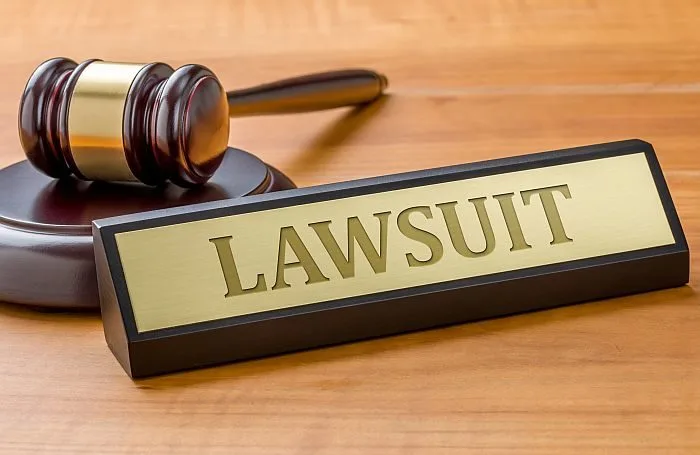Ford Motor Company is once again at the center of significant legal scrutiny as it faces a series of lawsuits related to fatal rollover accidents involving its SUVs and Super Duty trucks. These cases have raised serious concerns about the safety of Ford’s vehicle design, particularly the strength of its roofs during rollover crashes. The most notable of these cases resulted in a staggering $1.7 billion verdict in 2022, one of the largest punitive damage awards in U.S. history. This article dives deep into the ongoing lawsuits, the design defects being alleged, and the broader implications for both consumers and Ford.
The Fatal Rollover Case That Set the Stage
In August 2022, a Georgia jury ordered Ford to pay $1.7 billion in punitive damages after a wrongful death lawsuit linked to a rollover accident involving a 2002 Ford F-250 Super Duty truck. The case stemmed from the tragic deaths of Voncile and Melvin Hill, who were killed in 2014 when their vehicle’s tire blew out, leading to a rollover. The plaintiffs argued that the truck’s roof collapsed during the accident, which directly caused the fatalities. This lawsuit was particularly damning as it presented evidence that Ford had known about the weak roof design since at least 1999 but failed to make significant changes or issue a recall for the affected models.
The Alleged Defects: Weak Roof Design and Safety Failures
The core of the allegations against Ford revolves around the design of the roofs on their Super Duty trucks. According to the lawsuits, these roofs were not strong enough to withstand rollover crashes, leading to what is known as “roof crush.” In such accidents, the roof can collapse inward, causing severe injuries or fatalities to the occupants. More than 5 million Ford Super Duty trucks, spanning model years from 1999 to 2016, are alleged to have this defect.
Evidence presented during the Georgia trial included nearly 80 similar rollover accidents where the weak roof was a contributing factor. Lawyers for the plaintiffs successfully argued that the deaths in these cases would have been preventable had Ford designed stronger roofs. Interestingly, internal documents revealed that Ford engineers had developed a sturdier roof in 2005, but the company chose not to implement it on certain models, citing cost concerns.
Broader Impact: Multiple Class Actions and Ford’s Response
Ford’s legal troubles are not confined to a single case. In addition to the Georgia verdict, multiple class action lawsuits have been filed against the automaker concerning its SUV and truck models. These lawsuits echo the same concerns: that Ford knowingly allowed vehicles with defective roofs to remain on the road, endangering consumers.
The plaintiffs in these cases, including owners and lessees of Ford Super Duty trucks, have demanded that Ford either buy back the vehicles or compensate them for the diminished resale value due to the safety risks. Many also claim that the vehicles’ safety features, such as the Safety Canopy System designed to protect occupants during rollovers, are compromised by the weak roof structure.
Ford, for its part, has consistently denied any wrongdoing. The company argues that its vehicle designs meet or exceed federal safety standards and that the incidents in question are tragic but isolated. Ford is appealing the $1.7 billion verdict, claiming that it is unsupported by the evidence. However, with so many lawsuits pending, the company faces significant reputational and financial risks as these cases unfold.
The Historical Context: Ford’s Longstanding Rollover Controversies
This is not the first time Ford has faced litigation over rollover accidents. The most infamous example is the Firestone tire controversy of the late 1990s and early 2000s, where defective tires installed on Ford Explorers were linked to hundreds of rollover accidents, causing numerous fatalities. In that case, both Ford and Firestone faced lawsuits, and millions of tires were recalled.
While the Firestone debacle was primarily related to tire defects, it highlighted the inherent instability of SUVs, particularly in rollover situations. SUVs, with their higher center of gravity, are more prone to rollovers compared to sedans. This fact, combined with Ford’s allegedly defective roof design, has led to a perfect storm of legal challenges for the automaker.
What’s Next for Ford and Consumers?
As Ford continues to fight these lawsuits in court, consumers are left with several key concerns. First, there are growing questions about the safety of Ford’s SUVs and trucks, particularly the Super Duty models. Those who own or lease these vehicles are urged to be cautious and consider the risks involved in driving them, especially if they frequently travel on highways or in conditions where rollovers are more likely.
For those affected by these alleged defects, joining a class action lawsuit could be a potential avenue for compensation. The lawsuits are calling for Ford to either buy back the defective vehicles or provide financial compensation for the risks and reduced resale values. Meanwhile, Ford’s legal battles are far from over, with additional cases being consolidated and new claims potentially surfacing as more details about the roof defects emerge.
Conclusion: Ford at a Crossroads
The Ford rollover lawsuits have placed the automaker in a precarious position. While it has weathered legal storms in the past, the scale and potential financial liability of these cases could be significantly damaging. With billions of dollars at stake and the safety of millions of vehicles in question, Ford’s response in the coming months will be closely watched by both the automotive industry and consumers alike.
As these cases develop, it is clear that automakers like Ford will continue to face increased scrutiny over vehicle safety, especially in an era where consumers are more informed and empowered to demand accountability. Whether Ford can successfully appeal the rulings or reach settlements remains to be seen, but the implications of these lawsuits will undoubtedly resonate throughout the industry for years to come.


